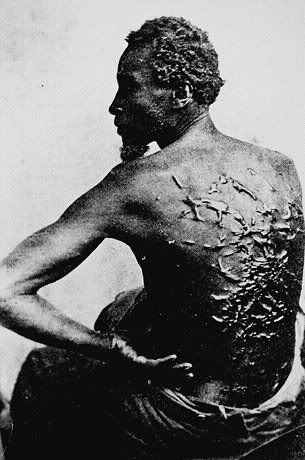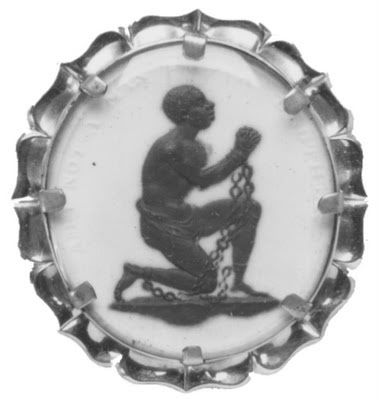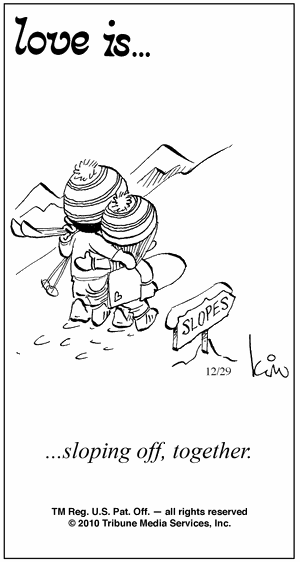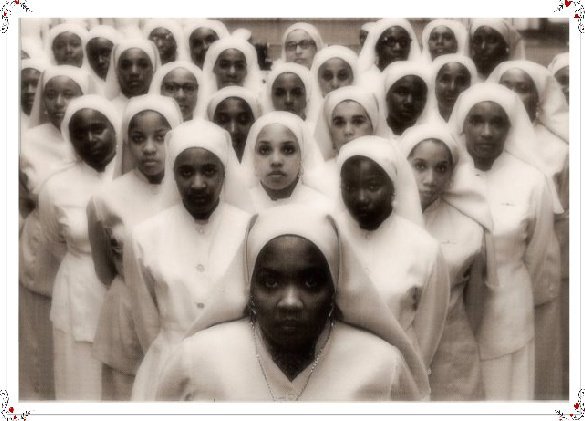


Shem Hotep ("I go in peace").

The Great Slavery Debate: Reparations Twist
When witnessing a debate on reparations, I often feel like I’m listening to people speaking completely different languages. Consider that when unarmed Black Oakland BART rider Oscar Grant was killed by a White police officer on a train platform, Blacks demanded a first-degree murder charge, although it had little chance of being sustained (no malice aforethought). While the accusation made Blacks feel good for a minute, the illusion of fair play departed when the jury opted for a more accurate charge.
When Blacks argue for reparations, it does not mean that they know or care anything about an accurate application. What they care about is a means to take revenge, while getting compensated for the suffering of their relatives (the end). Of course, Whites (and some Blacks) try to explain that reparations do not apply, to a chorus of ‘I-don’t-give-a-bleep what a White man or Uncle Tom thinks’. It’s not about laws or evolving moral codes of the day – it’s about emotion and payback. We need to call it what it is.
Reparations debates will never be resolved until Blacks can inject some objectivity where only emotions currently exist. For their part, Whites will never be a part of the resolution until they can cop to how reasonable it is for Blacks to blame slavery, as the catch basin, for the litany of misdeeds that continued after slavery ended.
Hopefully the day will come when Blacks stop soliciting unfulfilling indulgences from Whites, when what they really want is for Whites to admit that their ancestors outsmarted themselves, not only by kidnapping Africans, but more so by not making Blacks equal opportunity citizens after the emancipation. Both Blacks and Whites need to work (together), minus race cards, at understanding how pretend equality (of opportunity), the sustained post-slavery sin, got us to the dysfunctional mess we find ourselves today. Only then can we start making decisions and taking action to reverse the damage.

The Great Slavery Debate: Ungrateful Negroes
When it comes to discussing, or even thinking about, slavery, the great taboo of White folks is embodied in the question forever on their minds and almost never on their tongues, “Why are Blacks so ungrateful to be in America, when Africa is the worst place on the globe in terms of health, jobs, government, education, crime, climate, resources, blah, blah, blah?”
They will go on to say, “sure, slavery was bad for your ancestors, but it ended a long time ago”. They will also say that racism may exist, “but it exist in Africa too, and much worse, with one tribe committing genocide on another”. In the days before political correctness, Whites were fond of telling Blacks that they should go back to Africa, if they don’t like it here. The implication was always that however bad Blacks think America is, it is worse in Africa.
Where White people got off track is in thinking and acting like Blacks are immigrants. “Go home”, has always been the retort for the disgruntled immigrant, and some even made the return trip. But the African ancestry that was forced here is mostly like those people who stayed behind in Europe, China, India, etc. – meaning they are not immigrant-minded. So why did Black people stay here? Out of those that could have returned, they stayed mostly out of spite, and certainly not because anyone offered them a shot at the American Dream. This was the grand screw-up of US leadership before, during, and after the Civil War.
Fast-forward - if Black people could ever find a reason to want to be here, because of the relative opportunity, instead of being here to simply piss-off White people, a lot of the problems of the day would disappear. And ditto, if White people could ever accept responsibility for post-slavery abuse, without pretending to handover the keys to the kingdom, or other counter-productive acts of contrition.
The paradox is that Blacks cannot make Whites miserable about the past and what followed, without assuring their own adjacent misery, and Whites cannot make amends by only pretending to consider Blacks capable and
deserving of a fair shot. So we are all miserable together down the crapper

The Great Slavery Debate: Was Slavery Profitable?
Note: There are many who say that the economics of slavery were not very profitable, Thomas Sowell notably, and I would say they are wrong. However, it is important to distinguish (as I will attempt) between plantation slavery economics and the greater commerce value/impact of the triangular trade.
There are two high schools (Part 1 today), and one graduate school (Part 2 coming), of thought on the degree to which this country owes its fortunes to slavery, and by inference to Black ancestry. It is this notion of who benefited and who is owed, intertwined with current dysfunction, which sits as a big bugaboo to progress.
The Atlantic Slave Trade was a profitable component of triangular commerce of that day, but by itself not world changing. In fact, slavery has often been the spoil of a society that was good at something else, mainly war. Having other people to do your loathsome work has been a luxury for the already rich. The Atlantic Slave Trade was a final burst where pure labor was of pivotal importance to a more sophisticated system of commerce, mostly involving sugar and Europe’s sweet tooth for its by-products.
In the labor-starved Americas, slavery is what made the triangular system happen, on the front end. Thereby, it deserves a disproportion of the credit for the very profitable distilled-spirits and textiles on the back end. On the other hand, while plantation slavery made those owners rich, those same owners were not directly responsible for this country’s economic fortune. The overhead required to administer slaves within a system of zero incentive, was high. As a sidebar, had slaves been able to work in parallel to purchase their freedom, the US might have avoided a devastating war with itself.
The Wall Street banks and insurance companies in the north were a different story than the plantations. The slave trade business gave this country a critical foundation in establishing the commerce and banking infrastructure that world leadership would require. The names of those companies and their impact are undeniable – JP Morgan, Chase, Lehman Bros., Aetna, New York Life, to name a few.
So, in answer to whether slavery was profitable, the answer is both no and yes, but much more yes – as it was the lubricant for the most profitable European commerce transactions of the day. This is true even though American plantations were inefficient in their brutal waste and high overhead cost.
Up Next: Part 2 (Graduate School). Just because slavery was profitable does not mean that slaves, or their ancestors, have a rightful claim. The details and context of the day, both legal and ethical, must be applied.

Robyn I love you.
Lots of people want to ride with you in the limo, but what you want is someone who will take the bus with you when the limo breaks down. Love puts the fun in together, the sad in apart, and the joy in a heart.
Soul-mates are people who bring out the best in you. They are not perfect but are always perfect for you. Trip over love, you can get up. Fall in love and you fall forever. Love one another and you will be happy. It's as simple and as difficult as that. Are we not like two volumes of one book? Without love, what are we worth? Eighty-nine cents! Eighty-nine cents worth of chemicals walking around lonely.The hours I spend with you I look upon as sort of a perfumed garden, a dim twilight, and a fountain singing to it. You and you alone make me feel that I am alive. Other men it is said have seen angels, but I have seen thee and thou art enough.
I've fallen in love many times... always with you.















